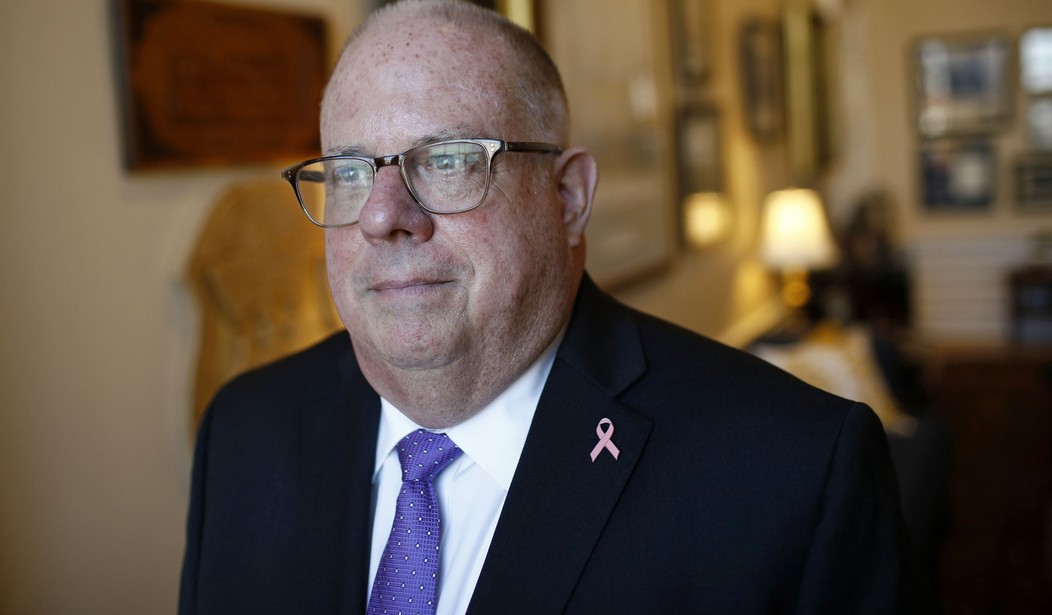Maryland Governor Larry Hogan was one of many GOP governors around the country to order an early end to federally enhanced unemployment benefits ahead of the projected termination of the program in September. That didn’t sit well with some of the litigious people currently receiving those benefits, so a couple of groups of them lawyered up in a predictable fashion and took the Governor to court. On Saturday, they found a judge willing to consider their demands and he issued an injunction, forcing the state to continue paying the extra benefits while the court reviewed the complaint. The plaintiffs claim that a failure to maximize their benefits however possible is a violation of both state law and the state constitution. But this lawsuit is raising interesting questions about states’ rights and the limits of executive authority at the federal level. (Baltimore Sun)
Maryland must continue paying federal unemployment benefits to tens of thousands of jobless residents, at least for now, a Baltimore judge has ruled.
The Saturday morning ruling by Circuit Judge Lawrence Fletcher-Hill came the day was state was set to end the pandemic unemployment aid, including $300 weekly payments and benefits covering the self-employed and others.
The judge issued a temporary restraining order requiring the state to keep administering the federal benefits after hearing arguments Friday in two lawsuits brought by unemployed Marylanders against Republican Gov. Larry Hogan and Maryland Labor Secretary Tiffany Robinson. The programs were scheduled to end at 11:59 p.m. Saturday.
Circuit Judge Lawrence Fletcher-Hill hasn’t flatly ruled in favor of the plaintiffs here. Instead, he’s giving both sides ten days to hold hearings where they will each make their case. The ruling states that the plaintiffs may be able to prove their claim, not that they’ve already proven it. He also agreed that the plaintiffs could “face significant hardship” if the benefits were incorrectly terminated.
We’re witnessing something rather unique in terms of lawsuits involving federal funding. In general, whenever the federal government appropriates money to be made available to the states for any reason, the states will quickly line up to grab their share and vacuum up every penny. This is particularly true if there’s an opportunity to hand money out to the voters since everyone loves “free money” and it tends to benefit the elected officials giving it out.
But now we have a state going to court to claim the right to not take the cash. Hogan’s argument is fairly simple. He’s saying that there are a record number of job openings in Maryland and employers can’t find enough workers to fill them all. Part of the reason for that is the unusually high unemployment benefits many are receiving over a far longer period of time than would normally be possible. Ending the federal enhancements would tempt more people to get back to work. He also notes that normal unemployment benefits without the federal enhancements will remain available.
Thus far, the attorneys for the plaintiffs don’t seem to have identified the specific portions of state laws or the constitution that require the state to “maximize the use of federal assistance programs.” Perhaps that can be inferred from some passages even if it’s not explicitly stated in that language. But is that close enough? It seems as if there is a difference between regularly contracted federal payments to the state and emergency funds that are “made available” for states that wish to apply for them. Hogan’s case appears to ride on the argument that if he doesn’t ask for the money, the remaining funds simply stay in Washington.
This should be an interesting case to keep an eye on. Instead of battling over ways to suck up as much taxpayer money as possible, we’re watching a state government fight for the right to shut off the spigot. Even if Hogan prevails, I get the impression that this isn’t a precedent that will be invoked very often.







Join the conversation as a VIP Member